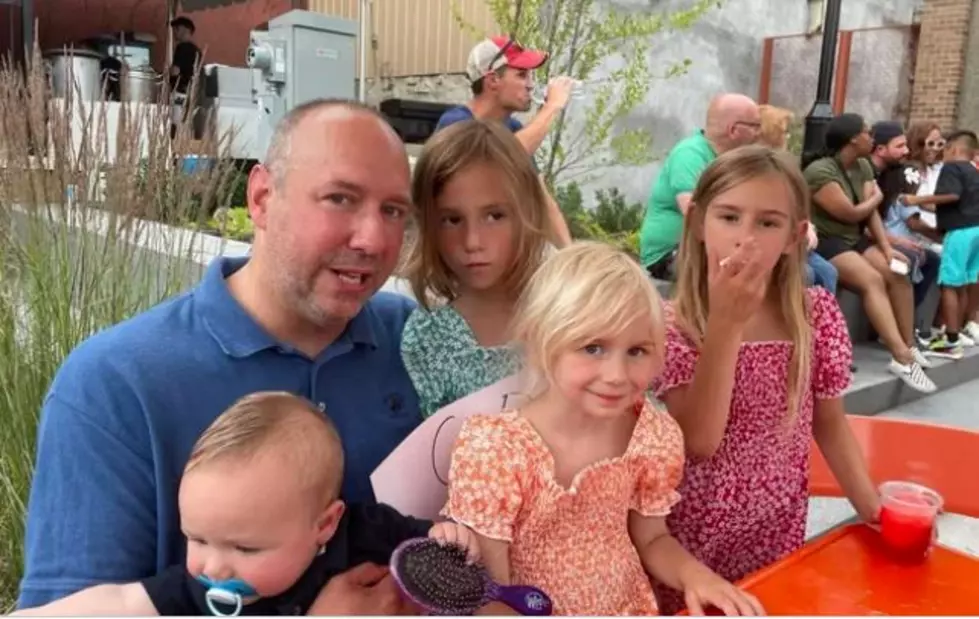
Camp Hope Veteran Outreach Offers Support for Southern Tier Veterans
As many as 400,000 service members live and struggle with the invisible wounds of war and most think they're alone. What's even more sobering is that 22 Veterans take their lives each. That adds up to 8,030 lives lost each year.
Yesterday, Glenn and I had the pleasure of meeting Josh and Kristina Palmer of Camp Hope Veteran Outreach. Josh and Kristina are on a mission to help give hope to Veterans struggling with issues related to post-traumatic stress disorder (PTSD) as well as adjusting to returning home after deployment.
Josh, an Army veteran, struggled with PTSD after multiple tours, but his life has been changed for the better thanks to Hampton, his PTSD service dog and he and Kristina have made it life goal to make sure that all veterans living with PTSD know that they're not alone and that there is help.
This is Josh and Kristina's story.
The Camp Hope Veteran Outreach's launch party will be held from 12-4pm on Sunday October 18th at the Community Field behind the library at 70 Main Street in Unadilla and will act as a benefit to support building a PTSD canine training facility.
At the launch party, there will be musical entertainment, pre-trained service dog demonstrations, food, fun and more with proceeds going directly to building a facility that will benefit veterans both locally and nationwide.
Tickets are on sale for $20 and you can see where to purchase them here. Also, if you'd like to learn how to become a private or a corporate sponsor you can contact Camp Hope Veterans Outreach, Inc. at 607-437-6927 or at camphopeveteranoutrech@gmail.com. If you can't make it to the launch party, you can help through their GoFundMe page.
If you or someone you love think that you might be struggling with PTSD (symptoms can show up months or years later), there is help and hope. You can call the National Suicide Prevention Lifeline anytime at 800-372-8255) and press 1 to reach the Veterans Crisis Line. These are 19 symptoms of PTSD:
- Recurrent, unwanted distressing memories of the traumatic event
- Reliving the traumatic event as if it were happening again (flashbacks)
- Upsetting dreams about the traumatic event
- Severe emotional distress or physical reactions to something that reminds you of the event
- Trying to avoid thinking or talking about the traumatic event
- Avoiding places, activities or people that remind you of the traumatic event
- Negative feelings about yourself or other people
- Inability to experience positive emotions
- Feeling emotionally numb
- lack of interest in activities you once enjoyed
- Hopelessness about the future
- memory problems, including not remembering important aspects of the traumatic event
- Irritability, angry outbursts or aggressive behavior
- Always being on guard for danger
- Overwhelming guilt or shame
- Self-destructive behavior, such as drinking too much or driving too fast
- Trouble concentrating
- Trouble sleeping
- Being easily startled or frightened
More From 98.1 The Hawk









